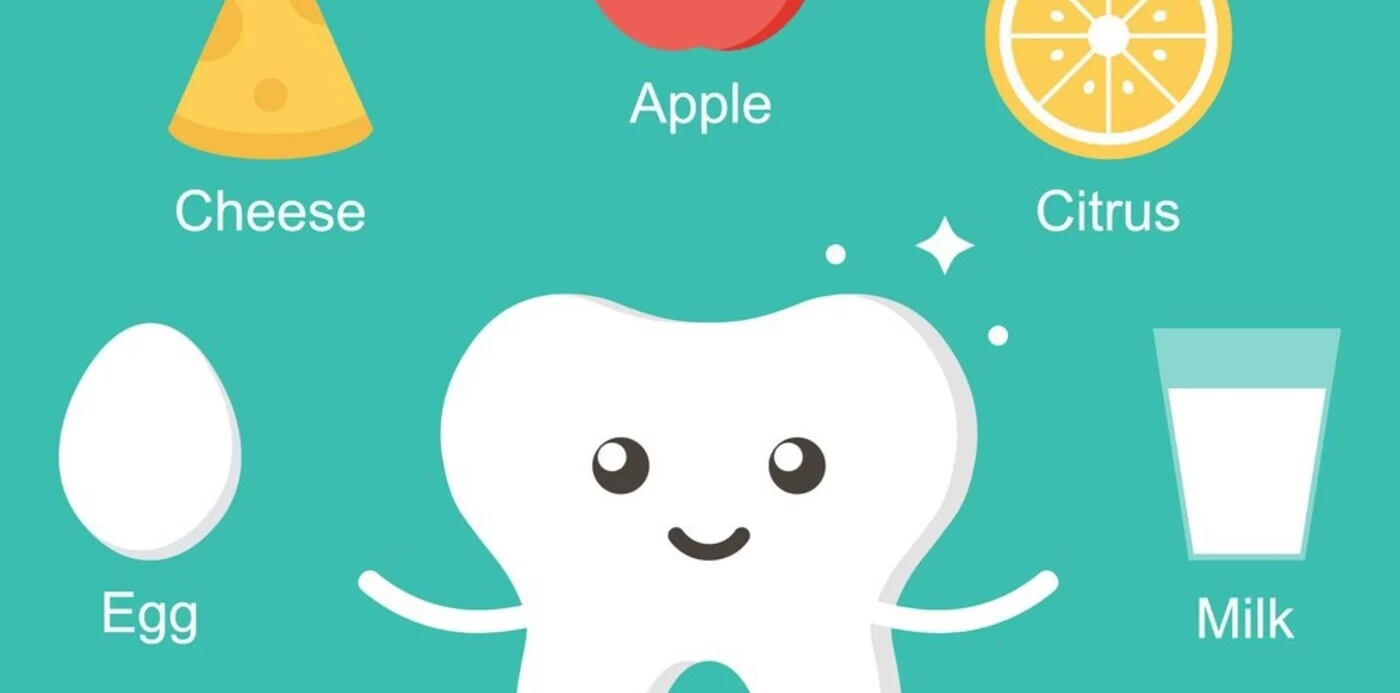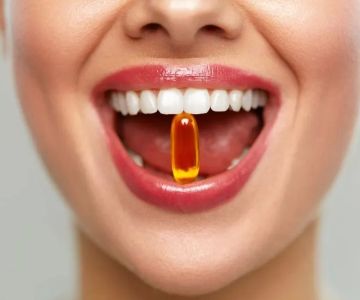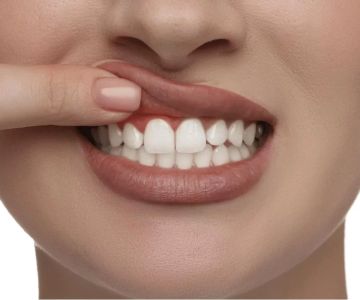
Maintaining Oral Health with Diet: Essential Foods and Tips for Strong Teeth
- Understanding the Link Between Diet and Oral Health
- Foods That Promote Healthy Teeth
- Foods to Avoid for Better Oral Health
- Practical Tips for Maintaining Oral Health with Diet
- Real-Life Examples of Dietary Impact on Oral Health
1. Understanding the Link Between Diet and Oral Health
The health of your teeth and gums is closely linked to the foods you eat. While brushing and flossing are essential for good oral hygiene, maintaining oral health with diet plays an equally important role. The right foods can help strengthen your teeth, prevent cavities, and promote healthy gums, while a poor diet can lead to various dental issues such as tooth decay, gum disease, and bad breath.
A balanced diet rich in vitamins, minerals, and antioxidants can keep your teeth strong and your gums healthy. Understanding which foods support oral health and which ones can harm it is the first step in maintaining a beautiful smile.
2. Foods That Promote Healthy Teeth
Certain foods are naturally beneficial for oral health. Incorporating these into your daily diet can help maintain strong teeth and gums. Here are some of the top foods to consider:
Calcium-Rich Foods
Calcium is a vital mineral for building and maintaining strong teeth. Dairy products like milk, cheese, and yogurt are excellent sources of calcium. If you are lactose intolerant or prefer non-dairy options, you can find calcium in fortified plant-based milk (such as almond or soy milk), leafy greens (like kale and spinach), and fortified cereals.
Why It Helps: Calcium helps strengthen the enamel, which is the outer layer of your teeth that protects them from decay.
Fruits and Vegetables
Fresh fruits and vegetables, especially crunchy ones like apples, carrots, and celery, are excellent for your oral health. These foods stimulate saliva production, which naturally helps wash away food particles and neutralize acids that cause tooth decay.
Why It Helps: Saliva acts as a natural defense against cavities by neutralizing the acids produced by harmful bacteria in your mouth.
Leafy Greens
Leafy greens like spinach, lettuce, and Swiss chard are not only rich in calcium but also contain folic acid, which can help reduce gum inflammation and promote overall oral health.
Why It Helps: These greens provide essential nutrients that help maintain healthy gums and teeth.
Vitamin C-Rich Foods
Vitamin C is essential for gum health as it helps prevent gum disease and promotes healing of gum tissues. Citrus fruits, strawberries, bell peppers, and broccoli are all excellent sources of Vitamin C.
Why It Helps: Vitamin C supports the connective tissues in your gums, helping to prevent bleeding and inflammation.
Green Tea
Green tea is rich in antioxidants, specifically catechins, which have been shown to reduce the growth of harmful bacteria in the mouth. Drinking green tea regularly can help prevent gum disease and reduce bad breath.
Why It Helps: Green tea’s antioxidants protect teeth and gums by fighting bacteria and reducing plaque formation.
3. Foods to Avoid for Better Oral Health
Just as some foods are beneficial for your oral health, others can have a negative impact. To maintain good oral hygiene, it’s essential to limit or avoid certain foods:
Sugary Snacks and Drinks
Sugar is one of the primary culprits of tooth decay. When sugar combines with the bacteria in your mouth, it forms acid that attacks the enamel of your teeth, leading to cavities. Candy, soda, and other sugary foods should be consumed in moderation, if at all.
Why It Hurts: Sugar promotes the growth of bacteria that cause tooth decay and gum disease.
Acidic Foods and Drinks
Citrus fruits and juices, while healthy in many ways, can be very acidic. Acidic foods can wear down your tooth enamel over time, making your teeth more susceptible to decay and sensitivity.
Why It Hurts: The acid from certain fruits and beverages erodes the protective enamel layer of your teeth.
Sticky Foods
Foods like caramel, gummy candies, and dried fruits can stick to your teeth, promoting plaque buildup and creating an environment for bacteria to thrive. This can result in cavities and other dental problems.
Why It Hurts: Sticky foods linger on your teeth, providing a constant food source for cavity-causing bacteria.
4. Practical Tips for Maintaining Oral Health with Diet
Maintaining oral health through diet is not just about choosing the right foods; it’s also about healthy eating habits. Here are some practical tips to help you:
Drink Plenty of Water
Drinking water is one of the best ways to maintain oral health. Water helps wash away food particles, neutralizes acids, and promotes healthy saliva production.
Balance Your Meals
Try to include a variety of nutrient-rich foods in every meal. A balanced diet that includes protein, healthy fats, and a variety of fruits and vegetables supports both your overall health and oral health.
Limit Snacking
Frequent snacking can increase the risk of tooth decay. If you do snack, choose healthier options like fresh vegetables or nuts, and avoid sugary or sticky foods that can damage your teeth.
5. Real-Life Examples of Dietary Impact on Oral Health
Many individuals have experienced dramatic improvements in their oral health simply by changing their diet. For example, Emily, a 40-year-old professional, noticed a significant decrease in her gum inflammation after she began incorporating more leafy greens and Vitamin C-rich foods into her diet. Her dentist confirmed that her gums were healthier, and she no longer suffered from frequent bleeding during brushing.
Similarly, John, a 25-year-old student, reduced his cavities significantly after he cut down on sugary snacks and started drinking more water. His dentist noted that his enamel was stronger, and his risk of decay had reduced.
These stories show the importance of a healthy diet in maintaining oral health.
For more tips on maintaining oral health with diet and expert advice on nutrition for healthy teeth, visit Dentistry Toothtruth.






 Westgate Dental Arts
Westgate Dental Arts Coventry Family Dental
Coventry Family Dental Familia Dental
Familia Dental Dr. Daniel S. Fife, DDS
Dr. Daniel S. Fife, DDS Dentistry At Suburban Square: Michael I. Wollock, DMD
Dentistry At Suburban Square: Michael I. Wollock, DMD Comfort Care Dental
Comfort Care Dental The Importance of Oral Health Education During Pregnancy for a Healthy Pregnancy
The Importance of Oral Health Education During Pregnancy for a Healthy Pregnancy Why Skipping Dental Checkups Can Lead to Bigger Oral Health Problems
Why Skipping Dental Checkups Can Lead to Bigger Oral Health Problems Best Tips for Brushing Your Teeth Properly for Healthy Gums: Essential Techniques for Oral Health
Best Tips for Brushing Your Teeth Properly for Healthy Gums: Essential Techniques for Oral Health Advantages of Porcelain Dental Restorations
Advantages of Porcelain Dental Restorations How Can Diabetes Cause Tooth and Gum Problems? Preventing and Managing Oral Health Issues
How Can Diabetes Cause Tooth and Gum Problems? Preventing and Managing Oral Health Issues Healthy Habits for Promoting Good Oral Health and Hygiene: Tips for a Healthy Smile
Healthy Habits for Promoting Good Oral Health and Hygiene: Tips for a Healthy Smile